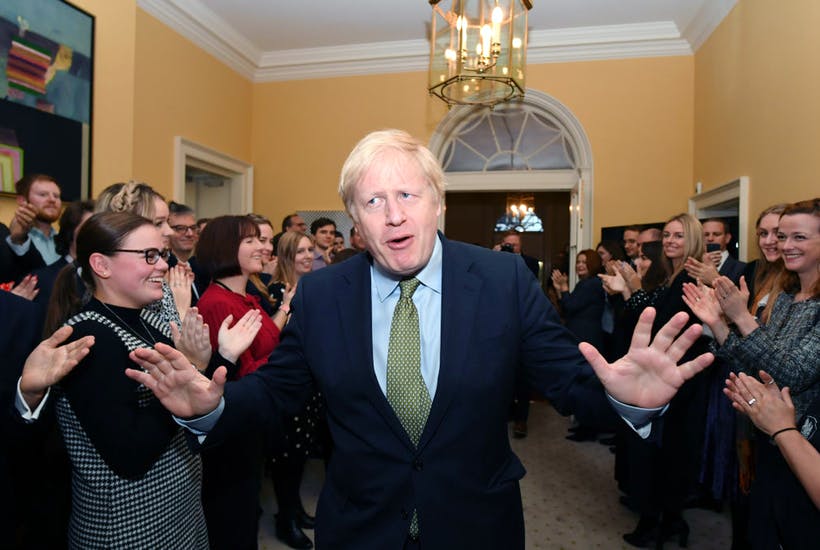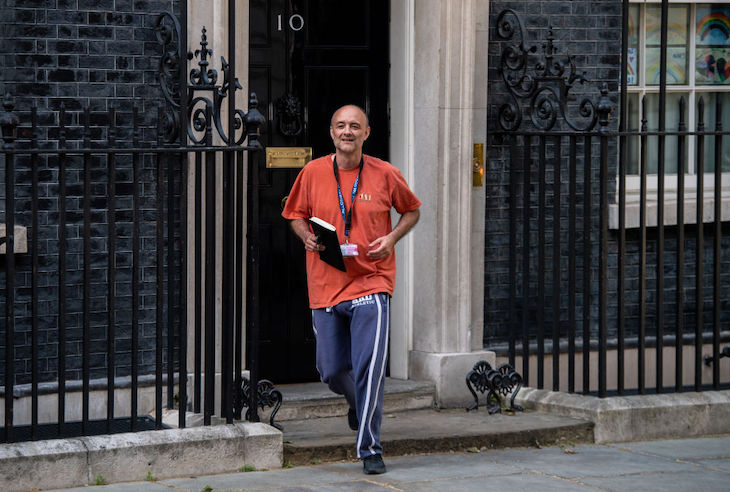Put aside the surprise at the scale of the Tory gains and look at where those gains came. Consider what is now the central question of British politics: how will the Conservatives try to keep their gains at the next general election?
Don’t assume that’s in 2024. The Fixed Term Parliaments Act may well not survive this election result. This majority gives Boris Johnson the scope to engage in constitutional reform, though big Scottish National party gains mean the biggest constitutional challenge will be keeping Scotland in the Union. I sadly think we’ll see IndyRef2 in this Parliament and I fear the outcome.
The Tories did badly in Scotland, but won in the English North and Midlands. How well? At least 15 of their gains from Labour have not had a Tory Member of Parliament since before 1945:
Rother Valley; Durham NW, Leigh, Newcastle-under-Lyme, Don Valley; Wakefield; West Brom E, West Brom W, Sedgefield, Bassetlaw, Wrexham, Bolsover, Stoke Ctl, Stoke N, Penistone & Stocksbridge, Blyth Valley.
As a Northumbrian, I can’t easily describe my amazement that Blyth now has a Conservative MP.
Why did these places go blue? Two reasons: Brexit and Corbyn. What matters now is that both of those things are temporary. Brexit will never be ‘done’ in a substantive way; we will always be negotiating with the EU. But politically, the Brexit story changes next year when our membership legally ends. The issue will remain but its salience will fall.
Corbyn will go too but Corbynism might not: his successor will be chosen by a membership who supported him and his program.
The point is that the things that have turned Blyth blue will not be present in the same way at the next election. And the MPs for those seats I listed will want to remain MPs. Ian Levy, the National Health Service nursing assistant who now represents Blyth, said he’s getting the train to London on Monday to get Brexit done and then start working with Boris Johnson to build an economy that works for places like Durham.
What does that mean for domestic policy? I think the biggest moment of the election campaign was when Johnson decided to scrap planned cuts in corporation tax and allocate the money to spending instead.
As he knows, places like Blyth have lent their votes to Johnson and the Tories, putting aside ingrained doubts about those Tories. They will not stay blue if the Conservatives live up to the old image of a heartless party of the rich.
Johnson’s first speech this morning made plain that he is aware he needs to do a lot to keep those borrowed votes in future. Just as he has beaten his old chum David Cameron at election-winning, now he has to outdo Dave in changing the Conservative party. (And do not underestimate the importance of this comparison, incidentally.)
If the party seeks to cut taxes — and I’m not sure that will be an urgent priority — they must focus on lower earners. More broadly, I expect a Johnson government to move left on the economy, spending and intervening more than many would expect of Conservatives. Shrinking the state is off the agenda: neo-Thatcherites dreaming of new deregulation lost badly this week. ‘A bad night for Liz Truss,’ was the verdict of one Tory friend this morning. Making the state work better for poorer places is now the Tory project.
Big infrastructure projects will be firmly on the agenda, funded by both public and private money: expect new focus on how to bring pension fund money into play here.
Regional policy and industrial strategy will move to the centre of the government agenda. In the short term, that may mean more willingness to support industries disrupted by Brexit.
In the longer term, the Treasury is preparing to take on the task of addressing the yawning gaps in skills, wages and productivity between English regions. Economic geography is the new rock and roll, kids. Expect to hear talk about rewriting the Treasury Green Book that says public money should always be spent where it gets the best return, a formula that favors the productive south-east. (See this by the SMF’s Scott Corfe on that economic geography and how HM Treasury staples like the Green Book might have to change).
Could rebalancing the economy mean more devolution of power from London? I don’t know, but the question is worth asking. I had conversations at Tory conference in October that made me think the party that gave us the Northern Powerhouse could now be open to more innovation here.
The need to keep Blyth blue might be mildly positive for public services, and not just the obvious ones of the NHS and police numbers. Further education and perhaps even local government could get more attention, if not much more money. Fiscal constraint will put the government under pressure to get more for less, however. Public service reform, long neglected, may get some attention.
Philosophically, those new MPs may well tilt the party’s approach to markets. The Tory manifesto speaks of giving the Competition and Markets Authority new powers to champion consumers. Industries relieved that Corbynism failed should not assume this Conservative government will give them an easy ride. There might just be a rethink about fundamentals like inequality and wealth, or at least a serious conversation about such things.
Is this a One Nation agenda? Johnson will say so, but it will be an evolution of One Nation thinking, because a more generous and active state will come with a more conservative approach to cultural issues. Crime will be central. Tough talk on law and order is surely coming: harsher sentencing and a bigger prison population. Don’t be surprised if the British aid budget is squeezed and the Department for International Development is folded back into the Foreign Office. Perhaps it will be a One Nation Conservatism, but it will wear a blue collar.
Yet the culture shift will not be a simple tilt towards the hang-and-flog ideas of the old Tory right. There is no sign that Johnson will resile from some quite big commitments on the environment. The Tory shires might not have liked wind turbines, but the party’s new voters might well see decarbonization as a source of good new jobs. The journey to Net Zero might well see the Conservatives seeking to spend significantly on R&D around energy, environment and transport.
There will be more surprises, too, because we’re about to start a period of politics and government that will be unlike anything we’ve known since the early years of this century: a time in which a single-party government has the numbers to govern for a full parliamentary term and the chance to enact its own domestic agenda. The Tory manifesto will not sustain five years of government, and especially not a government with the needs and ambitions this one has. The Conservatives will need more ideas.
As for Boris Johnson, well, he has power now, real power. And power reveals. This sort of power will reveal his real political instincts and motives. It will also reveal that what he wants most is to keep that power and the office he has just won. And that will mean a very different Conservative approach to domestic policy. The election will change many things, including the Tories.
This article was originally published on The Spectator’s UK website.


























